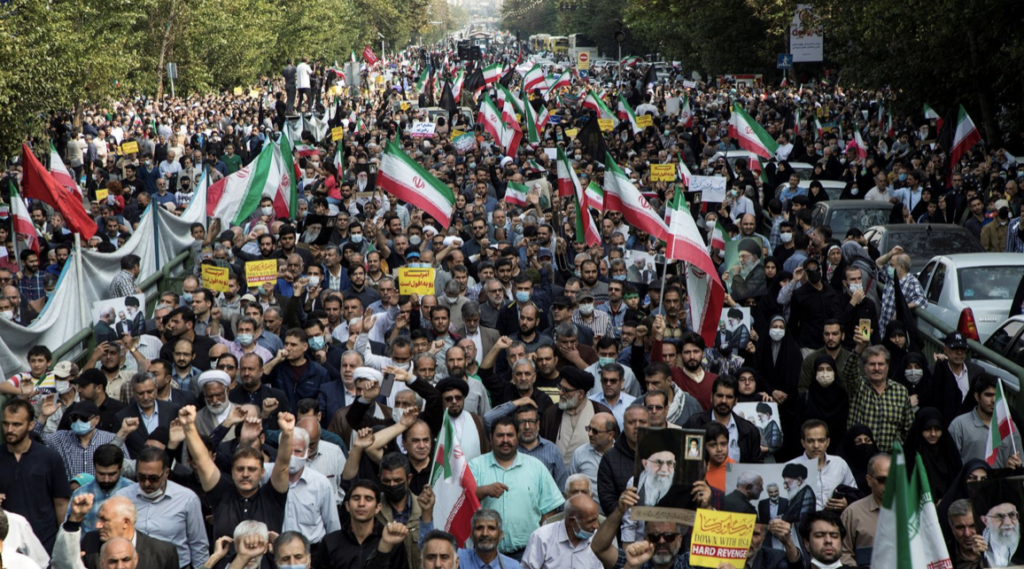Sanctions for Iran Following Executions

Courtesy of Sky News
By Emmett Dowdal-Osborn
Western powers announced fresh sanctions against prominent Iranian officials on Monday, following executions that have been used to crackdown on recent protests.
The United States focused its sanctions on senior members of the Islamic Revolutionary Guard Corps (IRGC). The IRGC acts as an economic conglomerate managing investments made in the Iranian economy. The U.S. has long considered this group a source of corruption and the force behind the recent suppression of civilian protests.
The European Union joined the U.S. in sanctioning Iranian officials of the IRGC, preventing those members from traveling to the EU and freezing any financial assets they hold in Europe.
The news comes as Iran has frequently resorted to the death penalty in its efforts to stop passionate demonstrations that have erupted across the country since this fall. On January 7, the regime put two men to death for allegedly participating in anti-government protests. Their hasty sentence raised red flags for Amnesty International, who denounced the inadequate evidence and forced confessions used in the trial. Family members of the two men insist they were denied legal representation of their choice, and were instead served by lawyers from the government.
On January 14, the Iranian Judiciary announced the hanging of Alireza Akbari on charges of espionage. Akbari, a dual citizen of Iran and the United Kingdom, was accused of passing classified information related to Iran’s national security to the British foreign intelligence service MI6 in return for millions of dollars. He was formerly a senior official in the Iranian government.
British Prime Minister, Rishi Sunak, called Akbari’s execution a “callous and cowardly act” on Twitter, condemning the regime for its lack of respect for human rights. French President, Emmanuel Macron, also criticized Akbari’s sentence on Twitter, calling it “a despicable and barbaric” act.While capital punishment is not a new tactic for the Iranian regime, the executions have taken on a new meaning in light of protests across the Shia majority country. The death of 22-year-old Mahsa Amini in September of 2022 sparked widespread protests against the police who were holding Amini at the time of her death. Various human rights groups have estimated that hundreds have been killed in the government’s attempts to dampen the uprisings. Iran has weathered calls for democratic reformation several times since its inception as a theocracy in 1979, but protesters are holding out hoping that this time it will be different.







